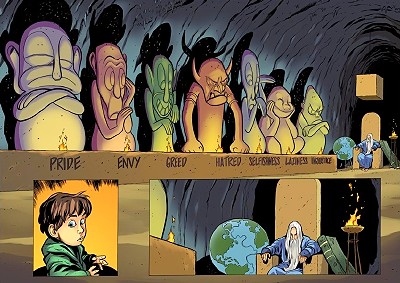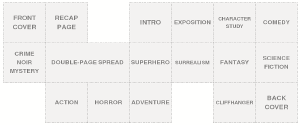En la Parte 1 de esta remembranza, comentábamos acerca del ingenio con el cual el prolífico autor multimedia Warren Ellis lograba destilar las propiedades y cualidades narrativas clave para hacer florecer de nueva cuenta a la propiedad intelectual de las grandes casas editoriales en el mundo de los comics: el “superhéroe” como un concepto básico de gran presencia y appeal entre generaciones enteras de lectores alrededor del mundo.
Otro ejemplo dentro de esta reflexión profunda que Ellis hace sobre el arquetipo del superhumano es el de CAPTAIN MARVEL, personaje publicado por la longeva DC Comics.
Sin mayor preámbulo presentamos lo que llamo La Duología de El Cambio parte 2, cuyo título provisional rondaba entre “El Moderno Capitán Maravilla” o “Recess: Billy Batson vs. Harry Potter”.
© Warren Ellis; publicado originalmente en 2001 en el extinto Warren Ellis Forum en Delphi dot com.
– – – – – – – – – –
Captain Marvel is a pig of a job to modernise. For one thing, there’s a shrieking cult of greybeards who’ll tell you that Captain Marvel doesn’t need modernising and comics attained perfection in 1948 or something.
They almost have a point, insofar as Captain Marvel is a children’s character and as such should probably be approached with that same mix of ever-so-slight spookiness and action-comedy. It is a product of its times, when that kind of cloying innocence and whimsy didn’t make people nod out or retch. I mean, look at the opening — it teaches kids both a little bit of traditional school history with the classical names that make up the word SHAZAM, and it drills in the good old Christian seven deadly sins.
I don’t know. Do you make Captain Marvel not a children’s character? Why not let some children’s characters stay children’s characters?
If you’re going to modernise it, then you probably give it a bit of Harry Potter. The transformation scene in Captain Marvel is primal children’s fiction — say your magic word and suddenly you’re not a kid any more, you’re imbued with all the superpower of adulthood, you can rescue people or smack them in the face and everybody loves and admires you.

It’s a similar effect to Harry Potter going to Hogwarts — you might be small and ugly and different, but somewhere’s there’s a place where you are loved and admired and heroic. It trips off similar buttons in kids.
So stick ’em together. You’re a small kid, and you’re lonely in the middle of a big town, walking around on your own, and it’s getting late… and you fall down a hole. And you’ve no friends to yell for. You have to walk down this long abandoned tunnel with weird shit carved into the walls… and at the end of it, things are no less creepy, because there’s this old guy who looks like Albus Dumbledore if he’d turned to crack… but this old, wise, kindly guy living in some blocked-up sewer pipe underground is going to be your best and only friend, the clever and loving parent-figure-by-default, who’s going to give you the kind of gift you dream of at night — a magic word, that transforms you.
And in becoming Captain Marvel, you discover there’s magic in the everyday world, if you know where to look. And maybe, you know, it’s learning how to find and revel in the strangeness in the cracks of the real world that helps Billy Batson grow up right. Helps him grow up to be Captain Marvel, even.
I’m rambling, but you get the gist, I’m sure. Reconfigure it as a piece of modern children’s fiction. Let it be what it is, just cut out all the mid-20th Century stuff that dates it so horribly.


